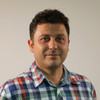How I became a "terrorist"
In recent times, Turkey's ruling Justice and Development Party (AKP) has embarked on a campaign to label everyone as a “terrorist”. In this rather personal piece, I examine the journey that led me to be labelled as such.
Turkey’s Council of Ministers, which was the executive body at the time, put my name on the list of a state of emergency decree on the grounds that I was associated with terrorism. The decree was published in the Official Gazette in February 2017. A year later, in March 2018, Turkey’s legislative body turned those lists into law. My name appeared again in the Official Gazette.
In recent times, the ruling Justice and Development Party (AKP) has started to denounce everyone as a “terrorist”. In a telling slip of the tongue, the AKP Central Executive Board (MKYK) member Ömer Çelik called Turkey a “terrorist organization”. Hence, I’d like to urge all those who are labeled “terrorists” - and potentially make up half of this country’s population – to a reflection. How did we become terrorists?
Finding an answer to this question entails an assessment of one’s childhood. My father was a worker, while my mother was a housewife. After he retired, my father bought a peach orchard. The year I began elementary school, my family engaged in rural activity. My background is both working class and rural. I attended school in the city during winter and worked in the countryside during the summer. Perhaps my rural upbringing has something to do with being a labeled a “terrorist” today. For rural life shows one how a tree grows, under what conditions it bears fruit. Seeing this makes one tied to the land and turns one into a enemy of its enemies.
My urban experience also led me to interact with Kurds and others, including Turks, Albanians or Bosnians who sold their goods on the same market we sold our produce. But school also bears responsibility. Or was it hereditary? Though my Bosnian grandmother never went to school, she nonetheless learned to read and was an avid reader. Perhaps this urge to seek justice came from her, or from the author Yaşar Kemal.
Though I had scored highly enough to enter İzmir Atatürk High School, my mother didn’t have enough money to pay the registration fee. So a quarrel erupted during my first day at school. I believed it was my right and that I shouldn’t have to pay for it. Later, I made stickers and pasted them on the toilets of the school.
I think the first person who regarded me as a terrorist was the school principal. He never found out I was amongst those who had pasted the stickers. Yet I also partook in the publication of a magazine called “Çığ” (Avalanche) at school, and he knew that. But we knew we were rightfully spending the school’s money and some of our teachers supported us. This was the first goal I scored against a person in a “big office”. It provided me with a great sense of fulfilment. It felt like the concretisation of freedom.
My father was obviously aware of everything. When he saw the magazines my mother took out my bag, he asked me if I was a communist. And when I answered “yes”, his voice got louder. He would say: “One cannot be a communist by spending the money of one's father.” As I made plans to attend Ankara’s faculty of Political Sciences, my father wished I didn’t. Still, he accompanied me there and gave me advice at the entrance of the university: “Do not bow and bend before anyone. Do not ask for anything you do not deserve. Do not be so rigid that you break with the smallest blow.”
After I entered that university, I remained there for a long time. Challenging thoughts never left my mind throughout my undergraduate years and beyond. I was never shy to voice them. When I told my father I was made an assistant professor at the department of constitutional studies, he responded sarcastically: “They wouldn’t make a constitution expert out of a communist.” My father didn’t live long enough see my name published twice in the Official Gazette “associated with terrorism”. Had he seen it, he would have said “Didn’t I tell you so?”
Five years ago, I was labeled a “terrorist” alongside all the other academics who signed the petition "We will not be a party to this crime”, which demanded peace and called for an end to the clashes in the southeast of the country. Back then, the dean of the faculty suggested we would no longer be considered “terrorists” if we withdrew our signatures.
Four years ago, I had to exit the door I had entered 20 years earlier. Dozens of my senior and junior colleagues were expelled from the university according to lists prepared by its rector, Erkan İbiş, which were ratified by the Council of Ministers.
As I received the news of my expulsion, I experienced that same feeling I had when I had gotten kicked out of the high school principal's office. We had done the right thing. Every one including those who fired us knew this. The satisfaction of fulfilling the responsibility that stems from academic freedom remains. It was our way of reciprocating what our poor people had invested in us. And today, this feeling is being revived by thousands of students who sing songs to protest the appointment of a “trustee” rector.
I was able to muster the courage to submit this rather personal piece because I know my story is far from exceptional. It is the story of millions of citizens who defend their land and are endowed with a public responsibility that stems from their profession as journalists, academics and raise their voice against bribery, favouritism and inequality.

